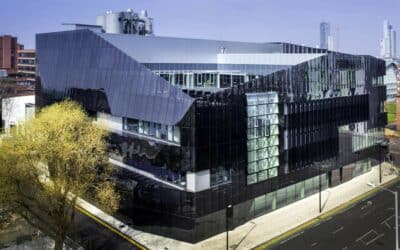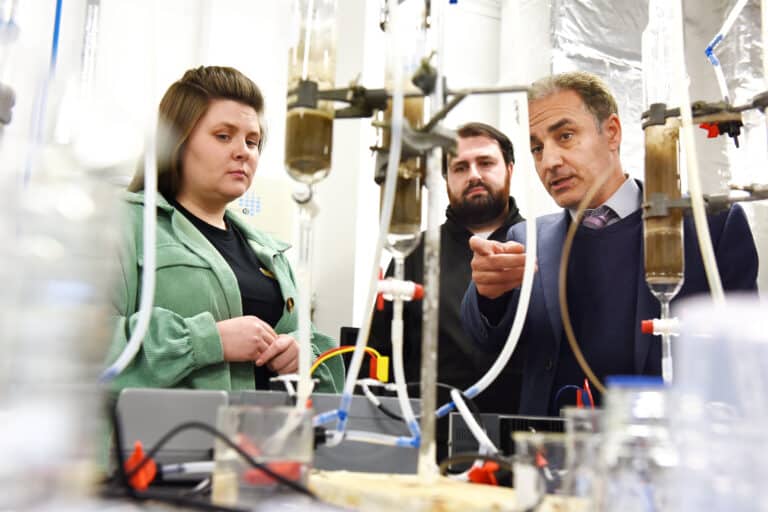An environmentally sustainable building material is being developed at Teesside University with the aim of revolutionising the £500bn global concrete market.
The £7.6m Mevocrete project aims to create a new form of concrete made from the by-products of the steel and chemical industries. The resulting product would emit up to 85% less carbon dioxide compared to traditional methods.
Concrete accounts for up to 8% of global greenhouse gas emissions.
“The Mevocrete project examines the entire supply-chain from the feedstock to end user. At the end of the project, we will have a dedicated Mevocrete production line, delivering a truly carbon negative cement, which importantly, will have been independently tested and verified,” explained Dr Elizabeth Gilligan, founder and CEO of Material Evolution.
“By utilising our ultra-low energy alkali-fusion technology, and using hyper-local waste streams, we can eliminate the need for Ordinary Portland Cement in concrete products. The industry has to have innovations like this if we are to meet our need to rapidly and radically decarbonise.”
The team behind Mevocrete are working with a new construction material made using waste steel slag patented by Middlesbrough-based company Material Evolution.
Researchers from the University’s School of Computing, Engineering & Digital Technologies will analyse the steel slag and its chemical composition and measure how efficient it is at sequestering carbon.
“For the UK to meet its Net Zero targets it is imperative that new ways to decarbonise the construction industry are found, and this project has the potential to have a major impact in reducing greenhouse gas emissions,” said The University’s project lead, Dr Sina Rezaei Gomari.











